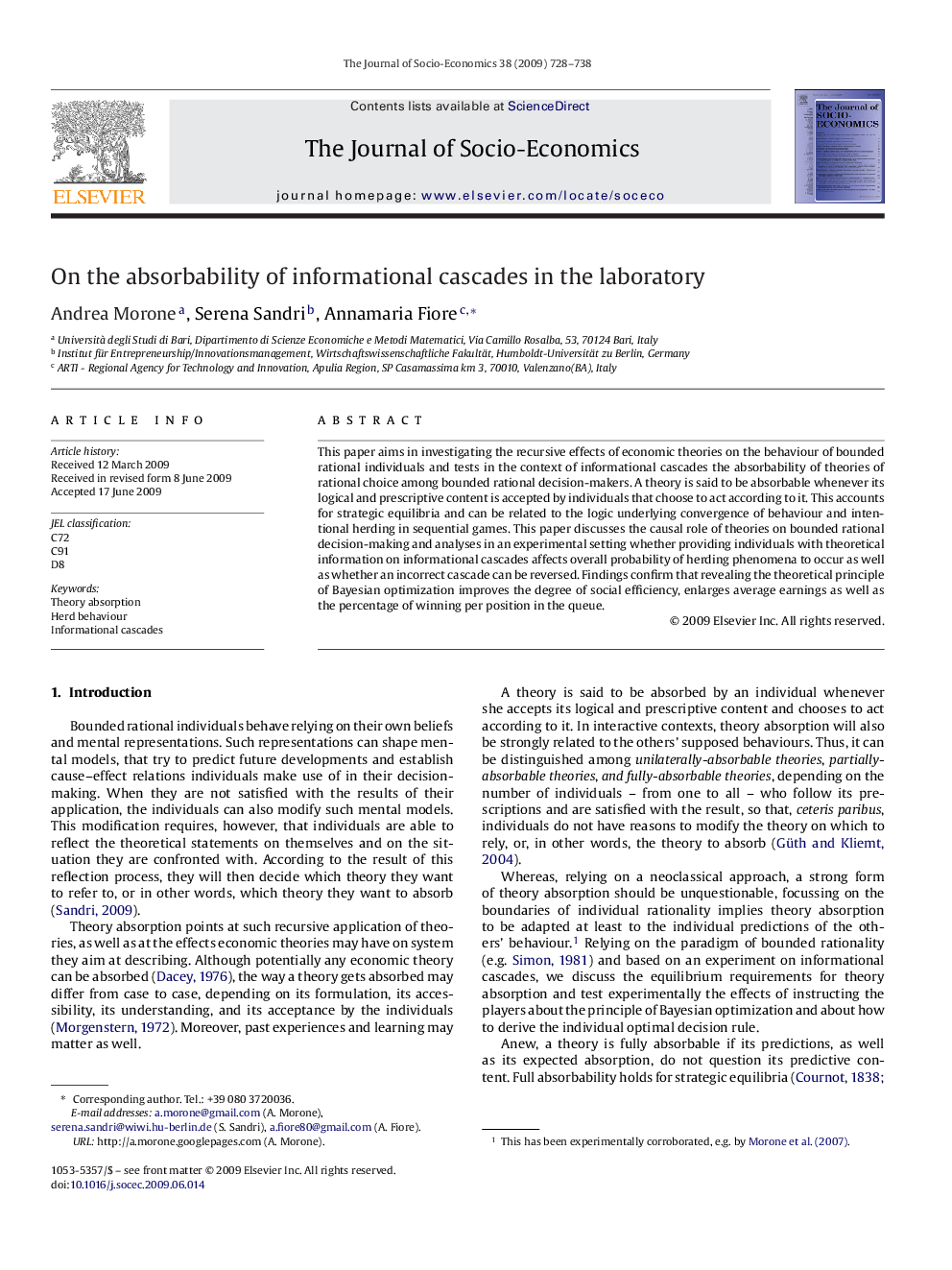| Article ID | Journal | Published Year | Pages | File Type |
|---|---|---|---|---|
| 970989 | The Journal of Socio-Economics | 2009 | 11 Pages |
Abstract
This paper aims in investigating the recursive effects of economic theories on the behaviour of bounded rational individuals and tests in the context of informational cascades the absorbability of theories of rational choice among bounded rational decision-makers. A theory is said to be absorbable whenever its logical and prescriptive content is accepted by individuals that choose to act according to it. This accounts for strategic equilibria and can be related to the logic underlying convergence of behaviour and intentional herding in sequential games. This paper discusses the causal role of theories on bounded rational decision-making and analyses in an experimental setting whether providing individuals with theoretical information on informational cascades affects overall probability of herding phenomena to occur as well as whether an incorrect cascade can be reversed. Findings confirm that revealing the theoretical principle of Bayesian optimization improves the degree of social efficiency, enlarges average earnings as well as the percentage of winning per position in the queue.
Related Topics
Social Sciences and Humanities
Economics, Econometrics and Finance
Economics and Econometrics
Authors
Andrea Morone, Serena Sandri, Annamaria Fiore,
